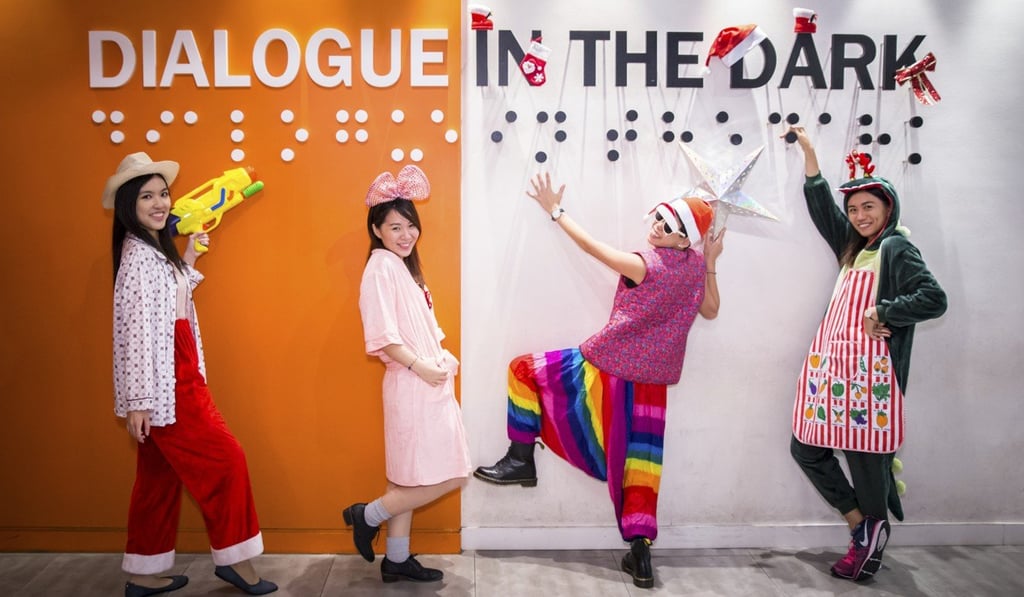Hong Kong NGO Dialogue in the Dark is changing the game to help young Chinese disabled people shine in the workplace
- The Dialogue in the Dark Foundation aims to nurture role models and has helped 20 trainees since 2016
- Participants in the programme are taught self-advocacy and other ways to build assertiveness so as to open up career opportunities

At the age of 18, on the cusp of what he hoped would be a dazzling future, Raymond Sun Jingrui was stricken with blindness and found his life suddenly changed.
“It was like falling from the sky down to earth. I thought I had been thrown on the scrap heap,” he says.
Locking himself away at home for four years, the Guangzhou youngster finally worked his way through all the mental torment, developing an interest in psychology in the process.
But Sun soon realised the only realistic career open to him was being a masseur. Now 30 and the owner of a massage parlour, he says there is always a part of him yearning for something else: “I want to get out of this circle of the blind.”

This summer, Sun has been presented with such an opportunity by Hong Kong’s Dialogue in the Dark Foundation, an NGO that aims to nurture role models. In 2016, it launched a programme that offers three-month job training and internships to physically disabled mainlanders with higher education. The organisation continues to help graduates with job-hunting by harnessing its connections with mainland companies.